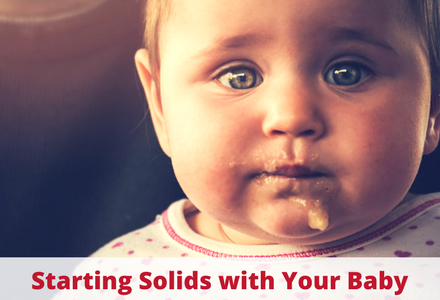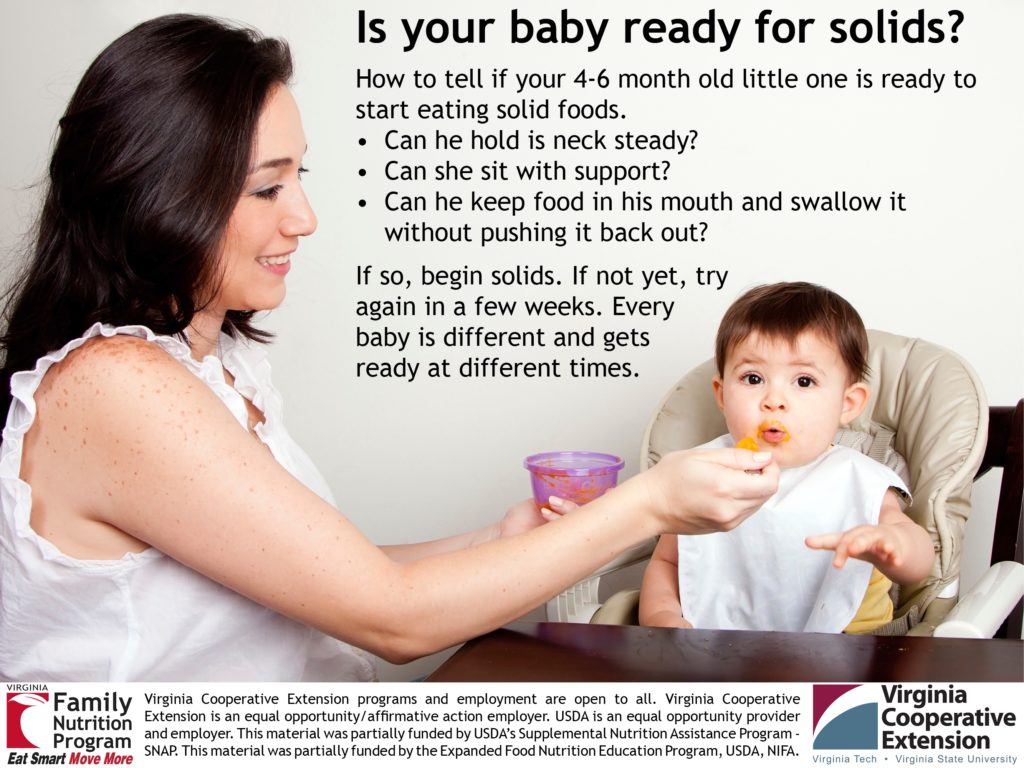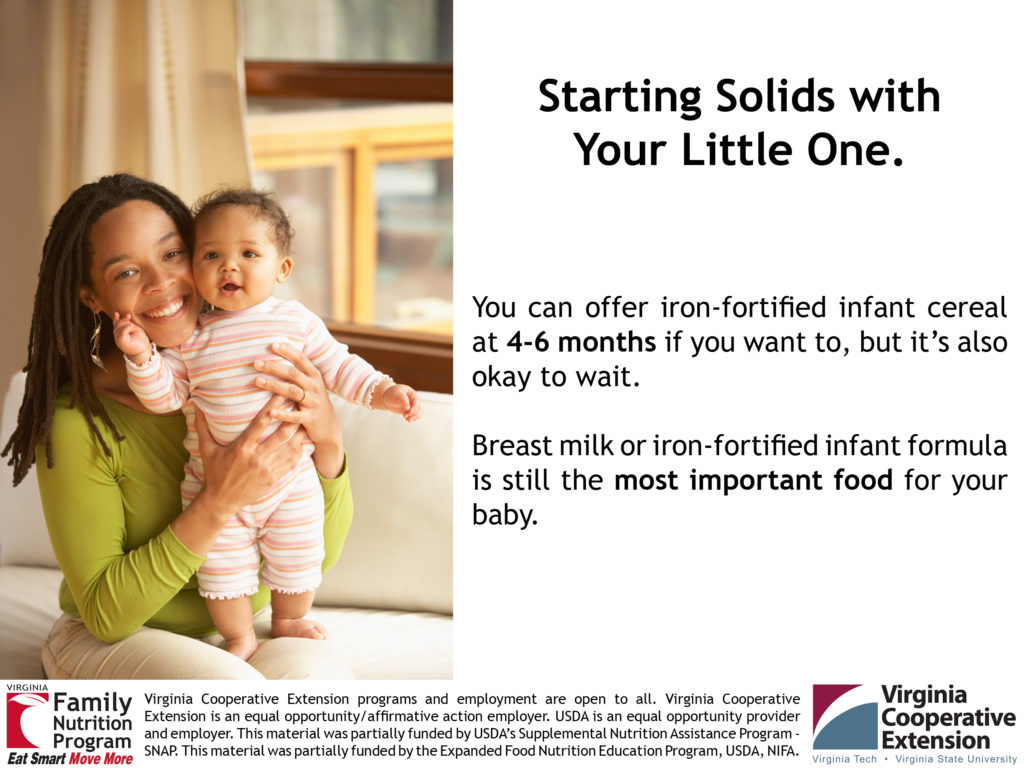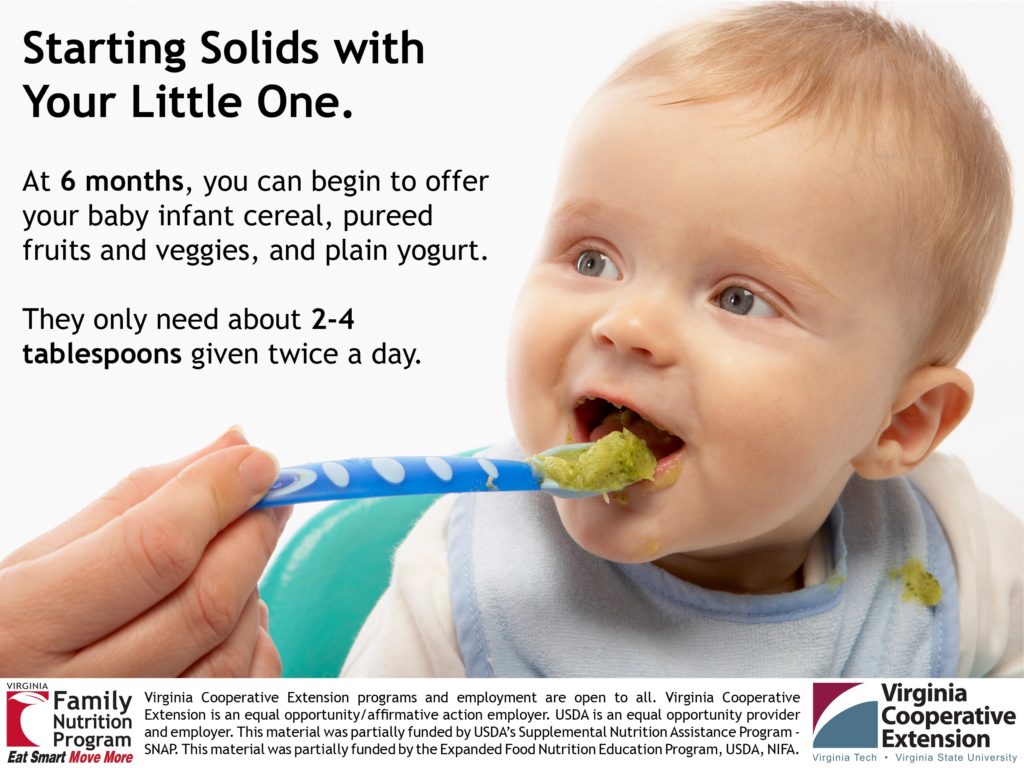Babies grow up quickly. Before you know it, your newborn will be twice as big, twice as active, and ready to try new things. One big milestone for growing babies is starting on solid foods. But how do you know when your baby is ready to safely start on solid foods?
Once your baby is around 6 months old, start looking for these signs she is ready to try solid foods:
- Your baby can hold their head up and sit up with some assistance.
- Your baby weighs double their birth weight and is at least 13 pounds.
- Your baby is interested in food. He might open his mouth while you’re eating.
- Your baby seems hungry even after drinking 32 ounces or more of breastmilk or formula.
- Your baby has lost her tongue thrusting reflex, meaning she doesn’t automatically spit out foods that touch her lips.
How to safely introduce solid foods to your baby
Start with one food at a time. Choose a single food to feed your baby. Check the label to make sure there’s only one ingredient listed. Feed just this food for 3-5 days to make sure your baby doesn’t have a reaction (rashes, wheezing, vomiting, or diarrhea). If your baby is fine, try a different single food following the same process.
What types of solid foods should you feed first?
Baby’s first foods should be soft, pureed smooth, and easy to swallow. Try mixing with a small amount of breastmilk, formula or water to thin to the consistency of cream. When first starting on solid foods, babies will only need small amounts, 1 or 2 teaspoons, at a time.
Babies, especially breastfed babies, need more iron starting at 6 months. Because of this, protein foods, like beef, chicken, or turkey, or iron-fortified baby cereal are good options for baby’s first foods. Remember to introduce them one at a time!
Pureed fruits and veggies are also great options for babies, such as pureed avocado, banana, sweet potato, carrots, pears or peas. You can buy baby food, or consider making your own. Homemade baby food recipes can save money if you want to spend a little time in the kitchen. As you introduce your baby to new solid foods, remember babies still get most of their nutrition from breastmilk or formula.
Starting solids is an exciting time for parents. There is a lot of fun and laughter as you find what foods your baby enjoys and manages to actually get in his mouth instead of his hair! You have total control of what your baby eats at this stage, so help her eat smart. Sugary drinks, juice, candy, and desserts don’t provide the nutrition to help your baby grow. Focus on the essentials – breastmilk or formula, iron-rich protein foods and fortified cereal, fruits, and veggies.
If you have any questions or concerns about your baby’s eating habits, talk with your pediatrician or WIC educator.





This is very good post. You can provide solid for your baby when aged 6 months.Baby’s first foods should be soft, pureed smooth, and easy to swallow This sounds is good.I could learn important mater solid food for my baby. thanks
Great post! I did exactly as you wrote, at the age of 6 months I fed my son with only one type of solid food each time. So I knew what he liked and what didn’t and it was a natural check for allergy or reaction. I’ve made all this food by my own and it wasn’t difficult at all. Today my 2 years old son has different tastes than he had at 6 months old. I remember he liked smashed avocado and ate it without a problem. Today he doesn’t like it. Maybe he will change his tastes again in the future. Thank you!
Thanks for sharing your story, Katia!